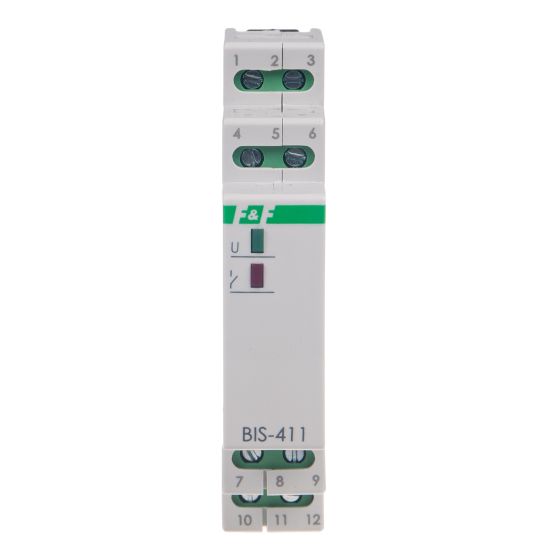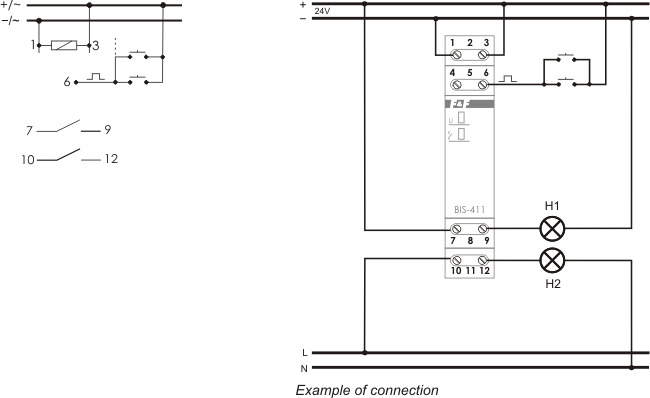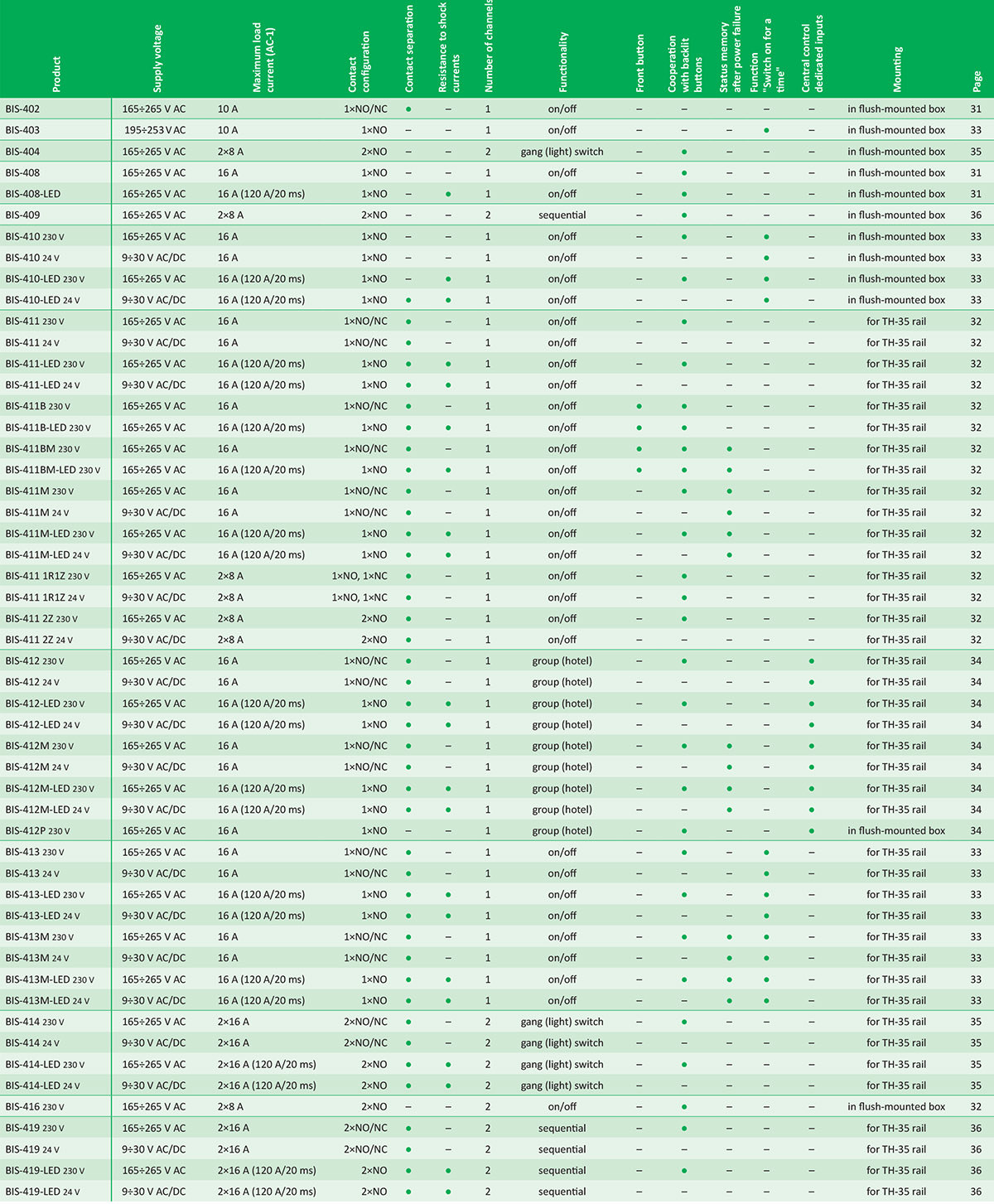





Functioning
The receiver is actuated by means of a current pulse triggered by pushing any bell push connected to the relay. The receiver is deactivated by another pulse or after a preset time.
The relay does not “memorize” the position of the relay contact, i.e. in case of supply voltage decay and the subsequent return of supply voltage, the relay contact will be set in the off position. Such a solution prevents the automatic actuation of the receivers controlled that might occur without proper supervision after a long-lasting decay of supply voltage.

